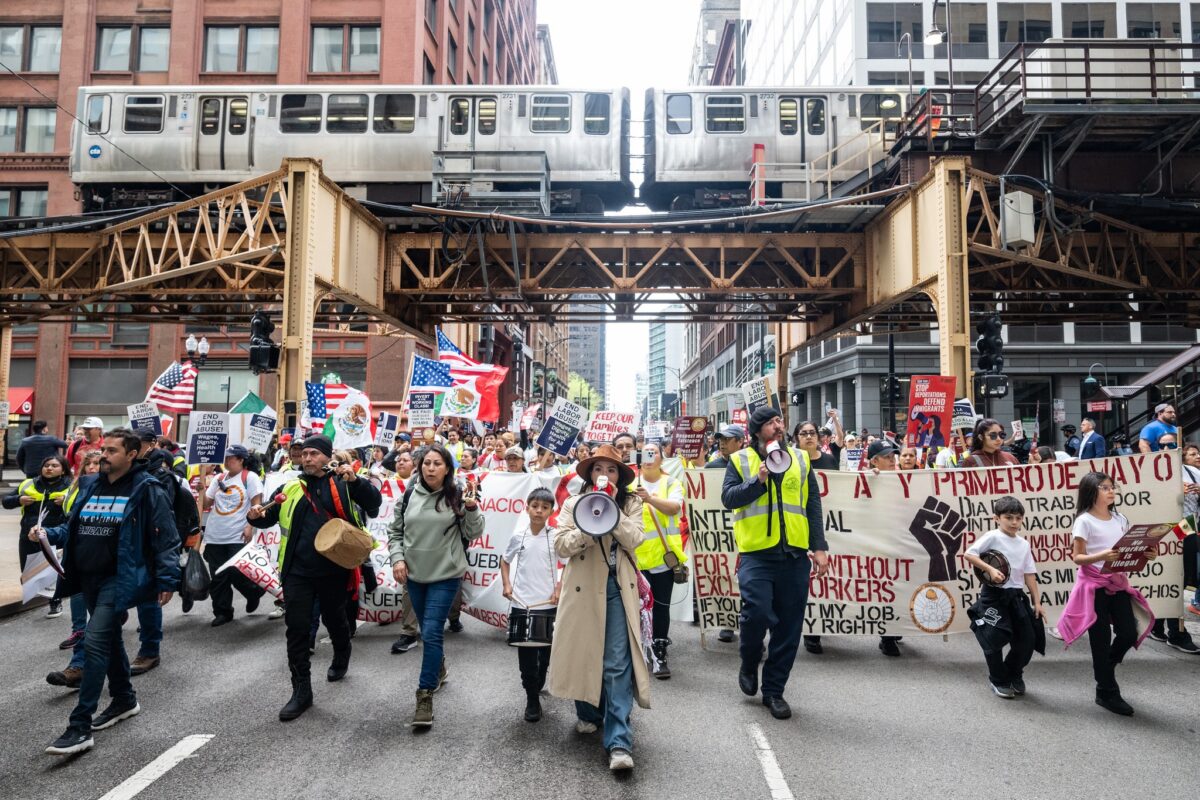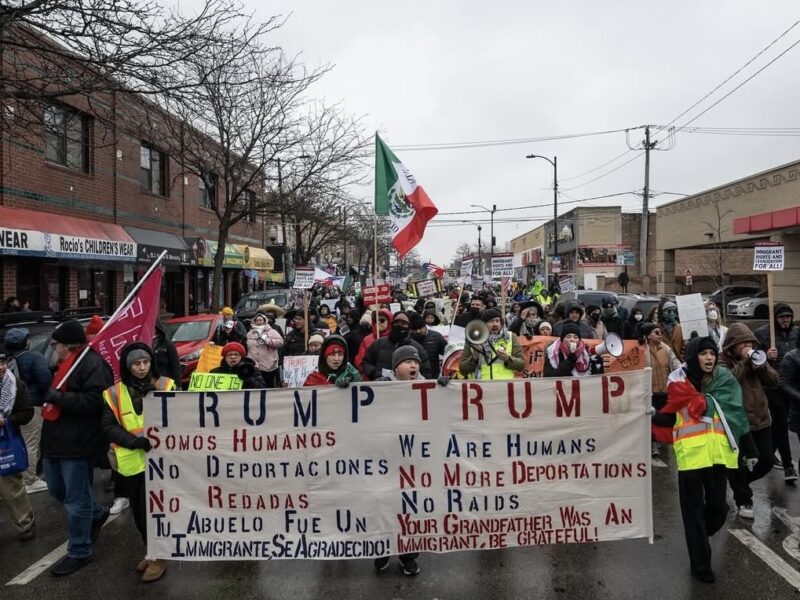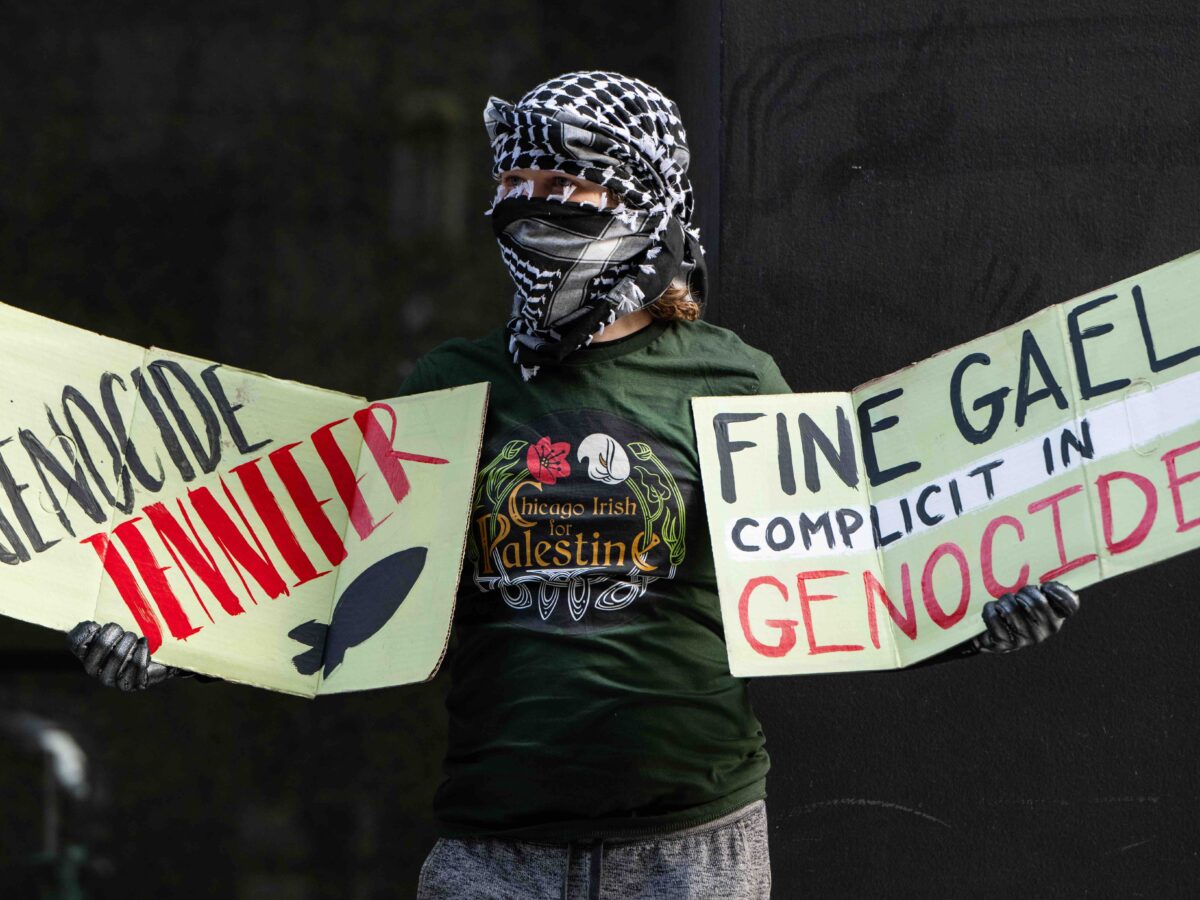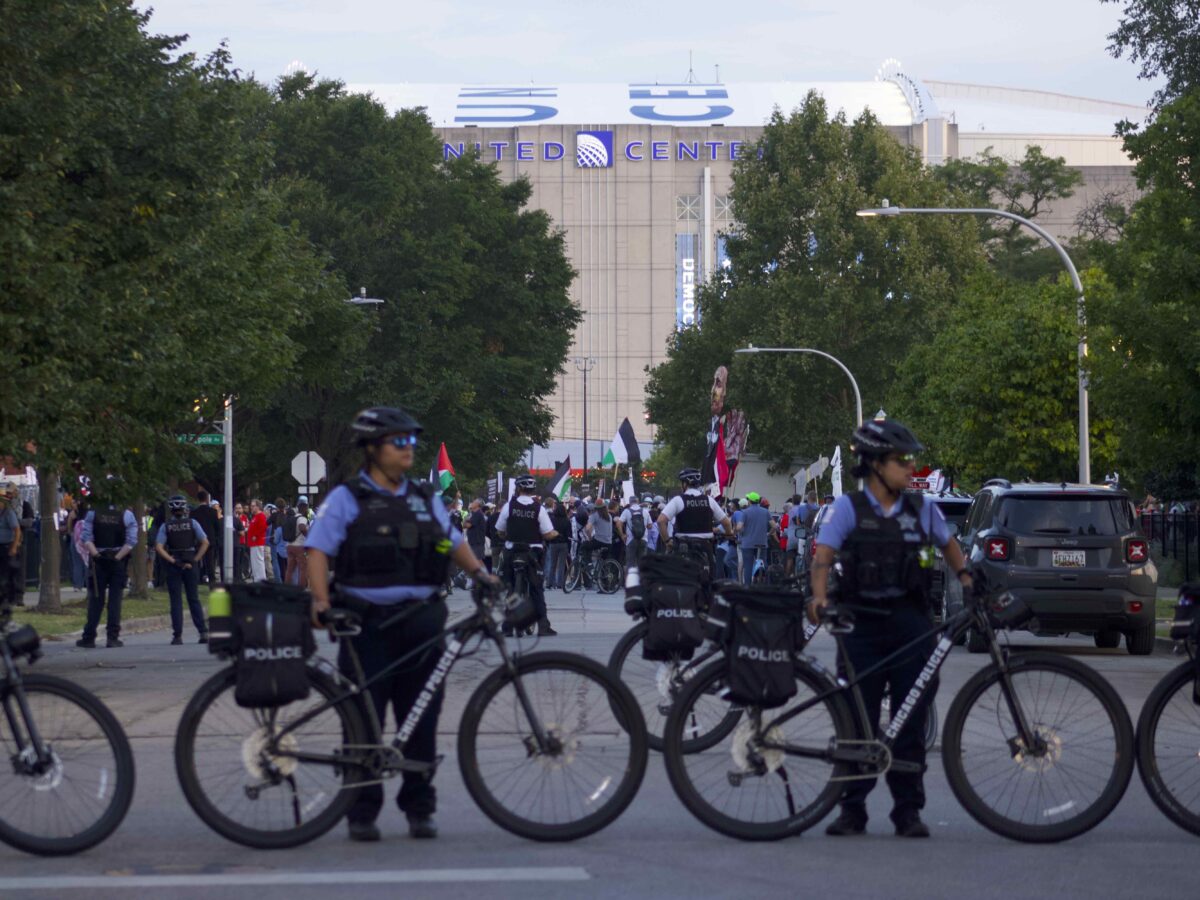Thousands marched through the Loop on Thursday to celebrate the May Day international workers’ holiday and to rebuke President Donald Trump’s attacks on immigrants and other vulnerable people. Billed as a push to “stop the billionaire agenda,” the march was the third mass protest in Chicago against the president since his second inauguration and one of hundreds held across the country on May 1.
A wide array of people representing labor and immigrant rights organizations attended, including the Service Employees International Union, Illinois Coalition for Immigrant and Refugee Rights, Organized Communities Against Deportation, ARISE Chicago, and others.
Rallies before and after the march, which stepped off in Union Park and concluded in Grant Park, featured speeches from local labor leaders, left-wing activists, clergy, and politicians. Rep. Jesus “Chuy” Garcia (IL-4), Chicago Teachers Union (CTU) President Stacy Davis Gates, Saint Sabina senior pastor Rev. Michael Pfleger, and Chicago Alliance Against Racist and Political Repression leader Frank Chapman were among those who addressed the crowd at Union Park.
At the end of the march, Mayor Brandon Johnson made an appearance, joining labor leaders and elected officials such as Chicago Federation of Labor President Bob Reiter and Ald. Byron Sigcho-Lopez (25th Ward) on the stage of the Petrillo band shell.
“We have come together to commemorate May Day, but we know deep down inside of our souls that if this democracy is going to survive, it’s going to be up to working people across this country,” Johnson said. “But let me make something very clear about Chicago. We will never fold, we will never bend, we will never bow down to the fascism that is being promulgated by this government.” He touted pro-labor initiatives his administration has passed, including abolishing sub-minimum wage for tipped workers, establishing ten days of paid time off for eligible workers, and agreeing to a new contract with CTU.
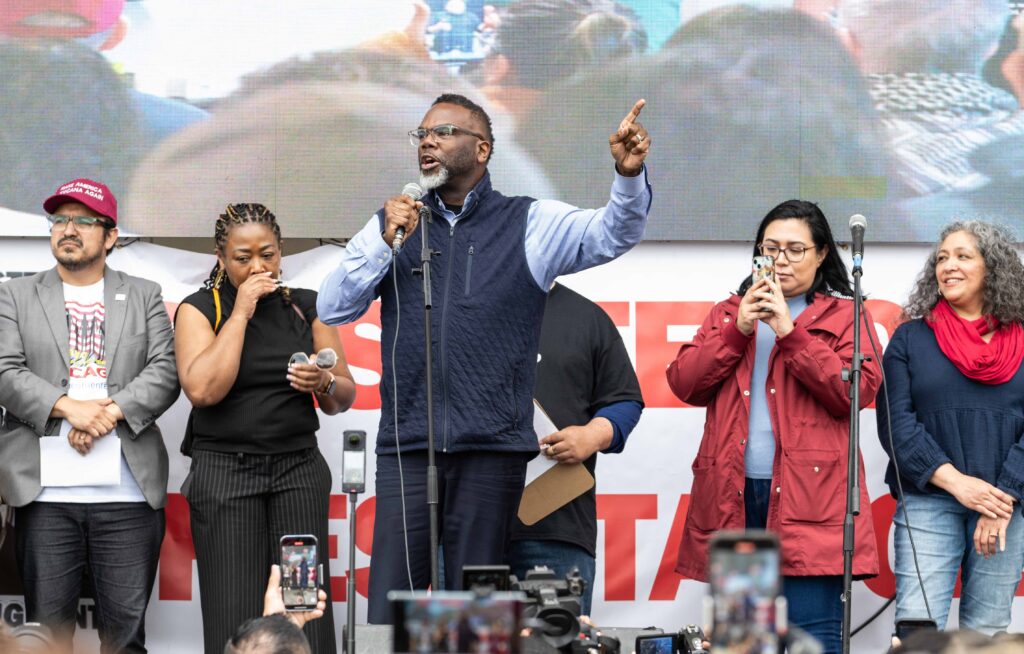
Johnson is the first mayor to speak at a May Day demonstration in recent memory, and possibly ever. The Weekly could find no evidence any previous sitting Chicago mayor has attended a May Day labor event. In the 1950s, when anti-communist sentiment was at a fever pitch, the city went so far as to deny a labor coalition’s May Day march permit in Union Park, granting one to a business group instead, according to the Daily Worker. On May Day in 2021, then-Mayor Lori Lightfoot tweeted in support of workers but did not attend any demonstrations.
Following his remarks, Johnson spoke briefly with the Weekly while exchanging greetings with a scrum of demonstrators and passers-by. It was important for him to attend as “someone who is a grandson, son of the labor movement, has been a part of the labor movement as part of CTU Local 1,” he said. “Showing up at this rally is just full support for what our fight has to be moving forward to protect our democracy.”
Asked whether Congressional Democrats should be more aggressive in opposing Trump’s agenda, Johnson said the effort is “going to take all of us to do more.”
“We have to rise up and make sure our voices are fully expressed, because our democracy is clearly under attack and we cannot allow our democracy to be destroyed or for our humanity to be essentially…eliminated.”
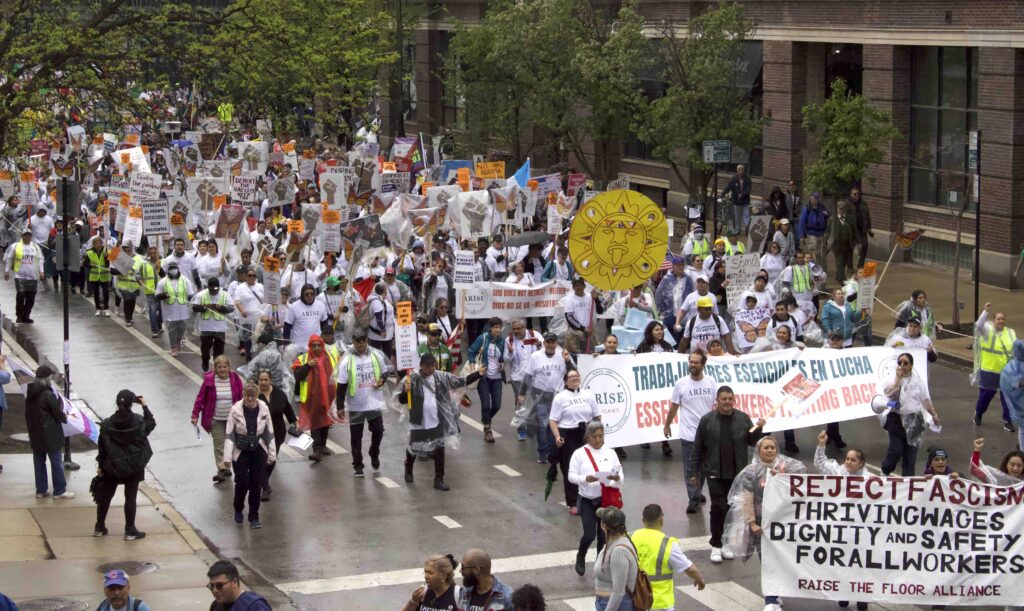
During Trump’s first hundred days in office, the president has engaged in increasingly authoritarian behavior, shutting down federal agencies, deporting residents—and in some cases U.S. citizens—without Constitutionally mandated due process, and defying a unanimous Supreme Court order to facilitate the return of a Maryland resident his administration sent to a notorious prison in El Salvador. Trump’s so-called border czar Tom Homan said Chicago would be “ground zero” for the administration’s deportation program. Homan expressed dismay in January that the city’s residents had effectively organized to resist his efforts.
May Day was made a labor holiday by the International Workers’ Congress in 1889. May 1 was chosen to commemorate the Haymarket affair, which occurred in Chicago at a rally held during a general strike for an eight-hour workday three years prior. The rally turned violent when an unknown assailant threw a bomb that killed seven police officers. Police killed a worker during the ensuing fracas.
Eight anarchist leaders—only two of whom were at the rally—were tried and found guilty of the bombing. Seven were sentenced to death, and one was sentenced to fifteen years in prison. Two of the defendants had their death sentences commuted, while one committed suicide in his jail cell before he could be executed. Four were hanged. In 1893, Gov. John Altgeld pardoned the three surviving defendants. The “Haymarket martyrs” are buried in Forest Park cemetery, where a monument to them is surrounded by the graves of generations of labor activists, Spanish Civil War veterans, civil rights movement organizers, and anarchist and communist revolutionaries.
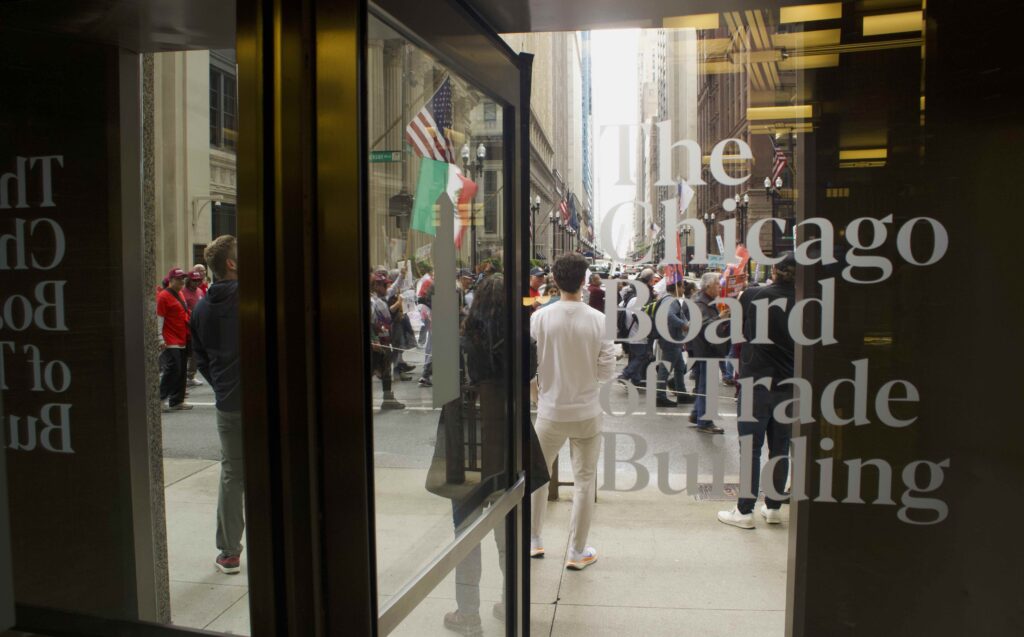
Loop workers and tourists stopped to watch and take pictures of the march as it passed. Some even joined in, while others shouted and pumped their fists in support. As demonstrators moved along Washington Ave., a young Latina woman wiped tears from her face as she watched.
“It’s [about] the rights that any person who steps foot in the United States has always been afforded to,” said Jorge Rios, a twenty-four-year-old hotel steward who watched the march pass by on Jackson Ave. with his coworkers. “There are insane justifications that are being used to essentially carry out unconstitutional activities.” He added that he’s currently “doing okay” financially, but that he expects that tariffs imposed by Trump will make things worse in coming months. “All we can do now is course-correct and hopefully return democracy back to the United States,” he added.
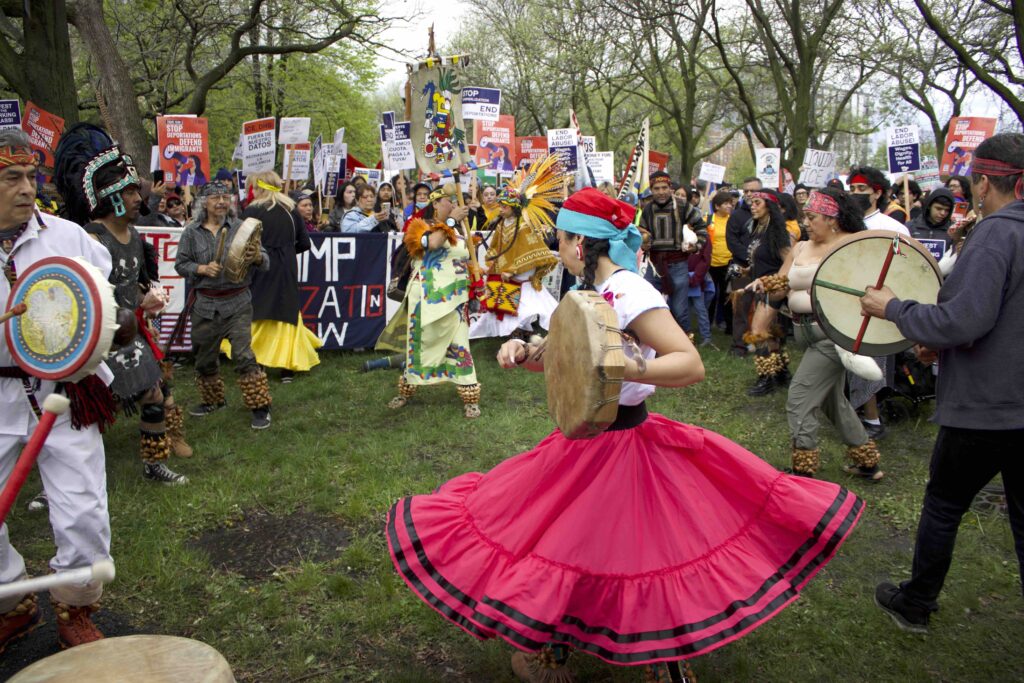
Juan Pedro, a thirty-two-year-old tourist who was visiting Chicago from Medellín, Colombia, stopped to watch the march pass by on Michigan Ave. He said that immigrant labor is “critical for the country to function” and that mass deportations would ultimately cause problems for Trump. “Immigrants have done so much for the [United States],” he said, “He’s being very hard on the people who helped build the country.” He added that tariffs are “not going to help a world [economy] as globalized as ours.”
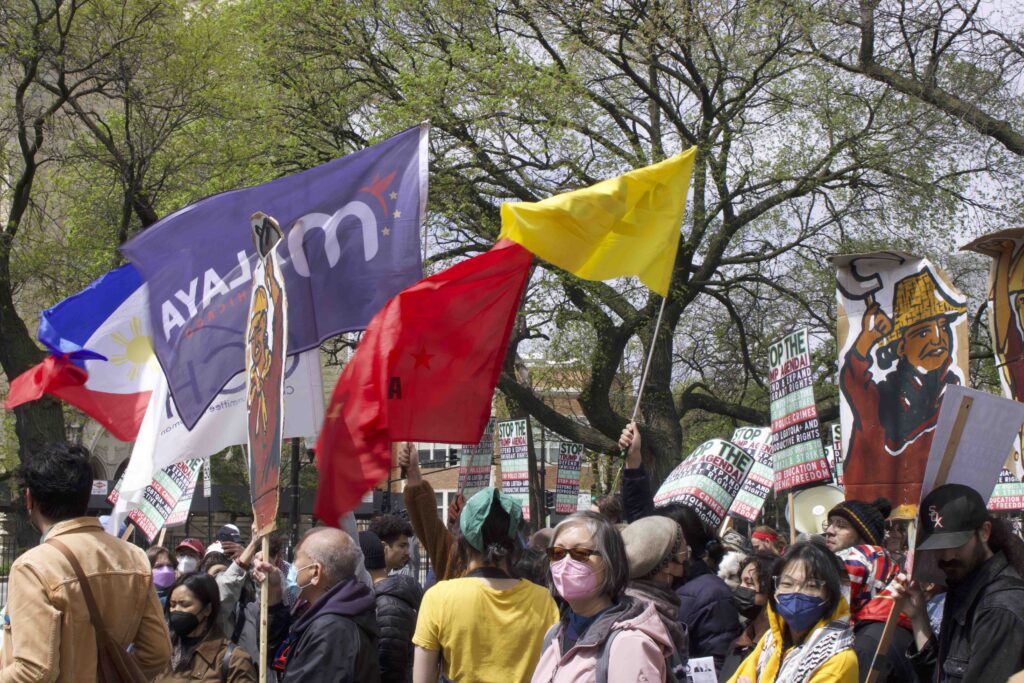
On Saturday, activists capped off the week’s activities with a Black and Brown Unity rally and march at Union Park. Representatives of CAARPR, Organized Communities Against Deportations, and other organizations addressed a crowd of about 150 people before demonstrators marched down Washington Ave. Speakers aired grievances with the Trump administration as well as Illinois democrats they said need to do more to oppose the president and support working people.
Near the Petrillo bandshell on May Day, Rashida, an older Black woman who declined to give her last name or age, said she’d come from the West Side to protest because things “aren’t looking good.”
“All the things Trump and his regime is doing, we’re in fascism. We’re already in fascism, and before we turn around, it could be too late to do anything about it,” she said. “It’s all out of control, and a big storm is coming.”
Jim Daley is the Weekly’s investigations editor.

